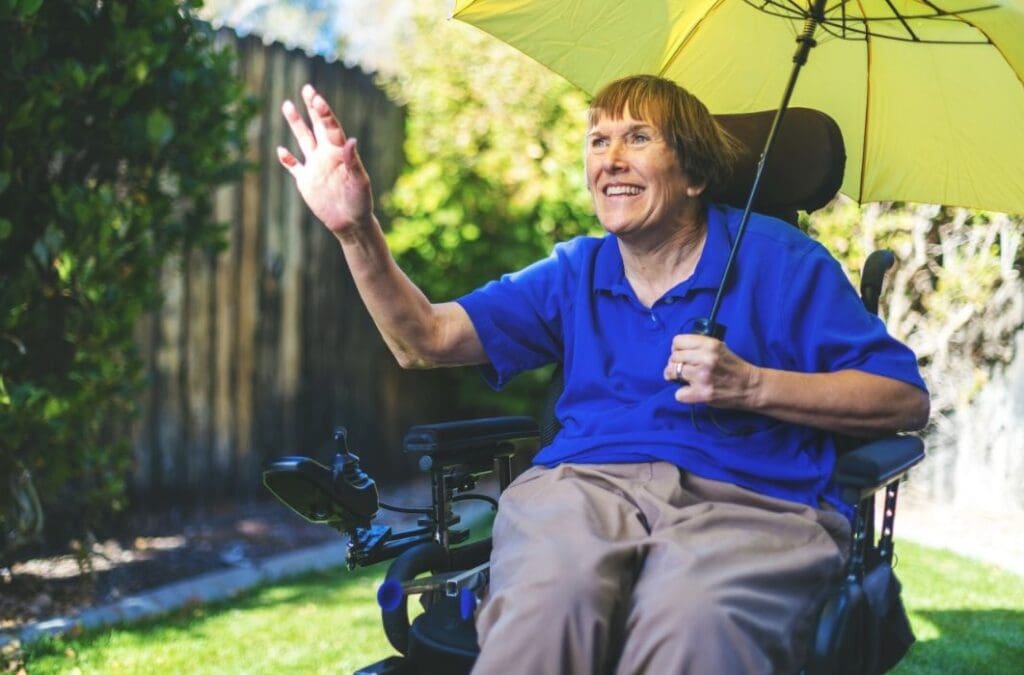Coping with a terminal illness is difficult, so it’s essential to understand how palliative care can make it easier for the individual and their family.
What is Palliative Care?
Palliative care is a specialised medical approach associated with alleviating pain and reducing discomfort in individuals facing severe illnesses or conditions, particularly those for whom the prognosis may ultimately lead to death.
The primary goal of palliative care is to enhance patients’ overall quality of life.
Who is Eligible for Palliative Care?
Palliative care is not exclusive to end-of-life situations; it is equally applicable to elderly individuals experiencing deteriorating health conditions, helping them manage symptoms and maintain a sense of comfort and dignity.
This type of care is available to individuals of any age who are grappling with serious, life-limiting illnesses, such as cancer or heart failure.
Palliative care is adaptable at any stage, according to the individual and their condition. There is even urgent care available for individuals requiring immediate care at short notice.
Is Palliative Care the Same as End-of-Life Care?
Palliative care and end-of-life care are related concepts, but they are not interchangeable. Palliative care extends beyond the confines of end-of-life situations; it encompasses a broader spectrum and, as mentioned, can be initiated at any stage of a severe illness.
On the other hand, end-of-life care is a specific subset of palliative care that concentrates on the unique needs of individuals in the final stages of a terminal illness.
Where Can Palliative Care Be Given?
Palliative care can be administered in various settings to cater to individuals facing severe illnesses’ unique needs and preferences.
Hospice centres are common locations where palliative care is provided, bringing together a team of healthcare professionals to offer comprehensive support.
A question often asked is, ‘How can you get palliative care at home?’.
One option is delivering palliative care in the familiar and comforting environment of the patient’s home. In this scenario, healthcare professionals, including nurses and therapists, regularly visit to provide medical support and assistance with daily activities.
For those seeking a more personalised and continuous approach, palliative care can also be offered through live-in care. In this arrangement, a trained live-in carer resides with the individual, delivering round-the-clock support for medical and non-medical needs, fostering a sense of comfort, companionship, and dignity.
What Types of Support Do a Palliative Care Team Provide?
IP Live-in Care is dedicated to providing exceptional 24/7 palliative support within the comfort and familiarity of an individual’s own home. They offer various services to enhance their well-being. This includes hands-on personal care, ensuring that the individual’s physical needs are met with compassion and professionalism.
Additionally, IP’s live-in carers are equipped to provide valuable advice on symptom management, offering practical solutions to reduce discomfort and improve the overall quality of life.
Beyond physical care, our live-in carers understand the importance of emotional well-being during challenging times and offer unwavering emotional support.
How to Tailor Palliative Care to Specific Conditions
Whether dealing with cancer, heart failure, or neurological disorders, palliative carers focus on enhancing overall quality of life and managing symptoms effectively. They tailor personalised and compassionate care to the unique challenges presented by each condition, making it a flexible and inclusive option for individuals and their families.
Cancer

Live-in carers providing palliative care for cancer employ a multidisciplinary approach, prioritising pain management, emotional support, and side-effect management throughout the diverse stages of the disease.
Heart Disease

Customising palliative care for individuals with heart disease emphasises symptom relief, including the effective management of heart-related symptoms.
The approach extends beyond physical aspects to offer essential psychosocial support, recognising the emotional toll that heart disease can take.
Neurological Disorders

Live-in carers provide palliative care for individuals with neurological disorders, focusing on improving their quality of life.
These disorders encompass a range of conditions, each presenting unique challenges. The live-in carer’s role involves offering personalised assistance, addressing physical needs, and adapting routines to enhance mobility.
Respiratory Conditions

Palliative care for respiratory conditions is dedicated to adeptly managing symptoms, offering crucial respiratory support, and assisting individuals in confronting the daily challenges posed by breathing difficulties.
Ultimately, live-in carers empower individuals to navigate their daily lives with greater ease and resilience amidst the complexities of respiratory conditions.
Multiple Sclerosis

Live-in palliative carers can support individuals with Multiple Sclerosis (MS), a chronic condition affecting the nervous system.
Common MS symptoms include fatigue, mobility issues, and muscle weakness. A live-in carer assists with daily activities such as bathing, dressing, and mobility, promoting independence. They help manage fatigue by organising routines and offering emotional support to cope with the psychological impact of MS.
Medication management is another essential aspect, ensuring consistency in taking prescribed medications.
Additionally, the live-in carer contributes to creating a safe living environment, minimising fall risks, and assisting in navigating challenges posed by mobility issues.
HIV & AIDS

HIV symptoms range from flu-like manifestations to weight loss and increased vulnerability to infections. In the advanced stage, known as AIDS, severe immune damage leads to significant weight loss, chronic fatigue, and neurological issues. Early detection and antiretroviral therapy are vital for managing HIV.
Ongoing medical care, including antiretroviral treatment, is essential to prevent the progression of AIDS and ensure the well-being of individuals living with HIV.
Liver Disease

Liver disease can manifest in various ways, affecting digestion, metabolism, and overall bodily functions.
Palliative care for liver disease is centred on carefully managing symptoms, offering crucial nutritional support, and addressing potential complications to enhance individuals’ comfort and overall well-being.
Stroke

Strokes can result in a range of symptoms, including physical impairments, cognitive challenges, and emotional distress.
Palliative care for stroke survivors is focused on comprehensive rehabilitation, pain management, and emotional support, improving the individual’s quality of life and restoring functional abilities after a stroke.
What to Expect From Palliative Care at Home
Comfortable Environment
Live-in carers facilitate comfortable living within an individual’s home by providing personalised assistance with daily activities, ensuring a familiar and supportive environment.
They adapt routines to enhance mobility, create a safe living space, and assist with medication management.
Beyond physical care, live-in carers offer emotional support and companionship and encourage open communication.
Medication Management
The live-in carer plays a crucial role in medication management, overseeing the timely administration of prescribed medications, monitoring effectiveness, and communicating with healthcare professionals to adjust the regimen as needed.
End-of-Life Planning
In supporting end-of-life planning, a live-in carer facilitates discussions about the individual’s wishes. They provide emotional support, guide decision-making, and ensure the person’s preferences for care and comfort are expressed.
The live-in carer collaborates with healthcare providers, coordinating arrangements and communicating the individual’s preferences effectively.
By fostering open conversations, they help create a plan aligned with the person’s values, offering comfort during this sensitive time.
Guidelines for Delivering Palliative Care
Steered by established principles, live-in carers deliver palliative care following comprehensive guidelines.
This adherence to guidelines creates a compassionate and supportive environment, enhancing the overall quality of life for those needing palliative care.
Furthermore, by collaborating closely with healthcare professionals, they implement a patient-centred approach, aligning care strategies with individual preferences.
IP Live-in Care understands how hard it is for family and friends of individuals with a terminal illness. A live-in carer can alleviate the stress and responsibilities, providing professional care as well as carrying out day-to-day duties around the individual’s home, i.e. cleaning and cooking, making sure it is comfortable and safe.
They are also adept at providing emotional support for everyone involved.
Contact our team at IP Live-in Care if you or a loved one require private palliative care at home.